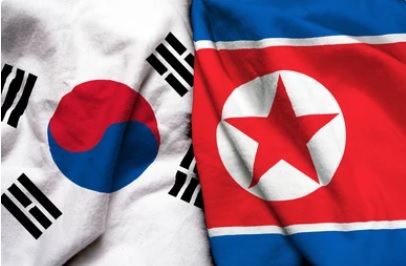A pensarci bene la guerra di Corea (1950-53) non è stata mai ufficialmente chiusa. Da 70 anni i due Stati della penisola coreana vivono una lunga tregua nel corso della quale non sono mancati momenti di grande tensione e incidenti sulla linea del 38° parallelo che hanno fatto temere una ripresa delle ostilità nella regione. Due governi e due sistemi politici agli antipodi si osservano in cagnesco e si sfidano facendo la voce grossa a vari livelli, almeno fino a questo momento. Una Guerra Fredda locale che continua senza esclusione di colpi e con tutti i mezzi a disposizione, compresa la propaganda radiofonica. Da nord e da sud le trasmissioni dei due Stati si incrociano senza soluzione di continuità e naturalmente anche il jamming a cui eravamo abituati ai tempi della contrapposizione dei blocchi fa parte di questa battaglia delle idee. La Corea del Sud trasmette, o almeno ci prova, verso il nord attraverso una serie di emittenti tra le quali una attivata dai servizi di intelligence denominata Echo of Hope. La risposta del nord è il classico jamming in stile cino-sovietico finalizzato ad evitarne l'ascolto. Grazie alla propagazione sulle onde corte gli echi di questa battaglia dell'etere arrivano anche qui in Europa dove si possono ascoltare sia le trasmissioni del sud che il jamming settentrionale. Una di queste frequenze è quella dei 6250 KHz che abbiamo monitorato questa sera intorno alle 19.00 UTC. Come potete ascoltare dal video che abbiamo realizzato, sulla frequenza nominale si ascolta solo il jamming e la trasmissione si ascolta con molta difficoltà nella modalità USB, mentre spostandoci in su di 4-5 KHz un debole segnale può essere ascoltato anche in AM. Echo of Hope dispone anche di diverse altre frequenze anch'esse sistematicamente oggetto di jamming. A volte, almeno qui in Europa si riesce ad ascoltare un buon segnale sui 4885 KHz. Non sappiamo quanti in Corea del Nord siano in grado o abbiano il coraggio di ascoltare queste trasmissioni ma dal sud non demordono, questa ed altre emittenti trasmettono in continuazione verso il nord con la speranza che qualcosa del loro messaggio arrivi a destinazione.
ECHO OF HOPE AND JAMMING, 6250 KHz
Come to think of it, the Korean War (1950-53) was never officially ended. For 70 years, the two states of the Korean peninsula have experienced a long truce during which there have been moments of great tension and incidents on the line of the 38th parallel which have raised fears of a resumption of hostilities in the region. Two governments and two political systems at the antipodes observe each other askance and challenge each other by raising their voices at various levels, at least until now. A local Cold War that continues with no holds barred and with all the means available, including radio propaganda. From the north and from the south, the transmissions of the two states cross seamlessly and of course the jamming we were used to at the time of the opposition of the blocks is also part of this battle of ideas. South Korea transmits, or at least tries to, to the north through a series of transmitters including one activated by the intelligence services called Echo of Hope. The northern response is classic Sino-Soviet style jamming aimed at avoiding overhearing. Thanks to the propagation on short waves, the echoes of this battle of the ether also reach here in Europe where both the southern transmissions and the northern jamming can be heard. One of these frequencies is that of 6250 KHz which we monitored this evening around 19.00 UTC. As you can hear from the video we made, on the nominal frequency only jamming is heard and the transmission is very difficult to hear in USB mode, while moving up 4-5 KHz a weak signal can also be heard in AM. Echo of Hope also has several other frequencies that are also systematically jammed. Sometimes, at least here in Europe you can hear a good signal on 4885 KHz. We don't know how many in North Korea are able or have the courage to listen to these broadcasts but from the south they don't give up, this and other stations broadcast continuously to the north with the hope that something of their message will reach its destination.

No comments:
Post a Comment